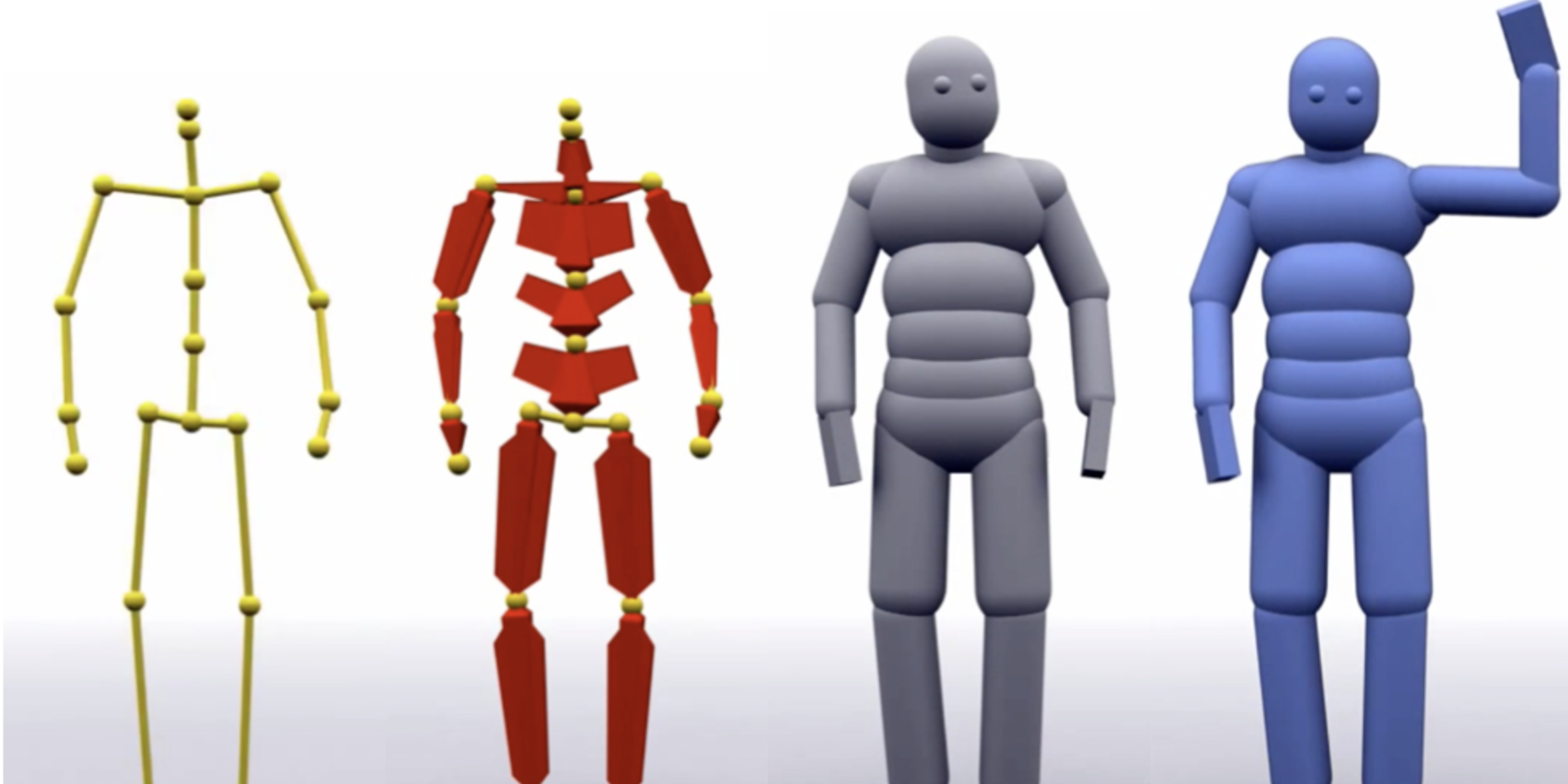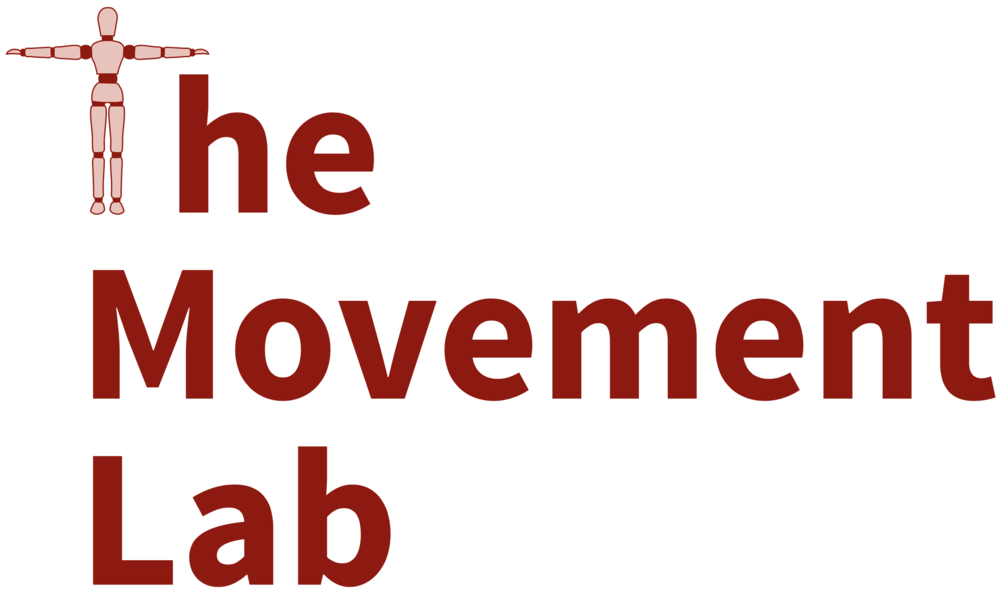CS348E: Character Animation: Modeling, Simulation, and Control of Human Motion

Spring 2023
Course Description
This course introduces technologies and mathematical tools for simulating, modeling, and controlling human/animal/robot movements. Students will be exposed to integrated knowledge and techniques across computer graphics, robotics, machine learning and biomechanics. The topics include human/humanoids kinematics, human/humanoids dynamics, trajectory optimization, reinforcement learning for motor skills, motion capture, machine learning for human motion synthesis and estimation, and differentiable physics simulation. Students who successfully complete this course will be able to use physics simulation for animation and robotic applications, to design/train control policies for locomotion or manipulation tasks on virtual agents, and to leverage motion capture data for synthesizing realistic virtual humans. The evaluation of this course is based on three programming projects, one written homework, and participation in paper discussion. There is no midterm or final exam.
Topics
- Animation basics: forward kinematics, inverse kinematics, forward dynamics and inverse dynamics
- Representation of human body, dexterous hand, and environment for motion synthesis, estimation, and control
- Motion synthesis as trajectory optimization
- Training virtual agents using reinforcement learning with proprioception, vision and haptics
- Learning controllable motion models from motion capture data
- Learning motion priors using variational autoencoders and diffusion models
- Human motion estimation using sparse sensors
- Human body modeling and parameter estimation
- Utilizing differentiable physics simulation for animation and robotics applications
Assignments and grading
Project 0 (10%)
Project 1 (25%)
Project 2 (25%)
Project 3 (25%)
Paper discussion (in class) (15%)
Paper discussion grading policy
- There will be a mini quiz for each of the papers discussed in class. Each quiz is worth 1 point in the final grade. There are 10 quizzes for a total of 10 points.
- During the discussions, you get 1 point for asking or answering a question. You may earn up to 7 points throughout the quarter.
- Your paper discussion grade (out of 15) is min(quiz points + discussion points, 15).
Late policy
Each student has a total of 5 late days for use over all projects. Using 1 late day extends the deadline by 24 hours. You may use up to 3 late days per project. No project will be accepted more than 72 hours after the deadline. Late assignments will not be accepted if you are out of late days, so use the late days wisely!
Calendar:
| Week | Topics | Assignments |
|---|---|---|
|
Apr 3 - Apr 7 |
|
|
|
Apr 10 - Apr 14 |
Project 0 out (4/13) |
|
|
Apr 17 - Apr 21 |
Project 0 due (4/21)
|
|
|
Apr 24 - Apr 28 |
Project 1 out (4/24) |
|
|
May 1 - May 5 |
Paper discussion: Synthesis of Biologically Realistic Human Motion Using Joint Torque Actuation |
Project 2 out (5/5) |
|
May 8 - May 12 |
Paper discussion: Catch & Carry: Reusable Neural Controllers for Vision-Guided Whole-Body Tasks |
Project 1 due (5/8) |
|
May 15 - May 19 |
Project 2 due (5/19) Project 3 out (5/17) |
|
|
May 22 - May 26 |
Paper discussion: Phase-Functioned Neural Networks for Character Control Paper discussion: DeepPhase: Periodic Autoencoders for Learning Motion Phase Manifolds |
|
|
May 29 - Jun 2 |
Memorial day (no class) Paper discussion: MDM: Human Motion Diffusion Model ManipNet: Neural Manipulation Synthesis with a Hand-Object Spatial Representation |
|
|
Jun 5 - Jun 9 |
Guest lecture (Sebastian Starke) Project 3 progress meeting |
Project 3 due (6/12) |
